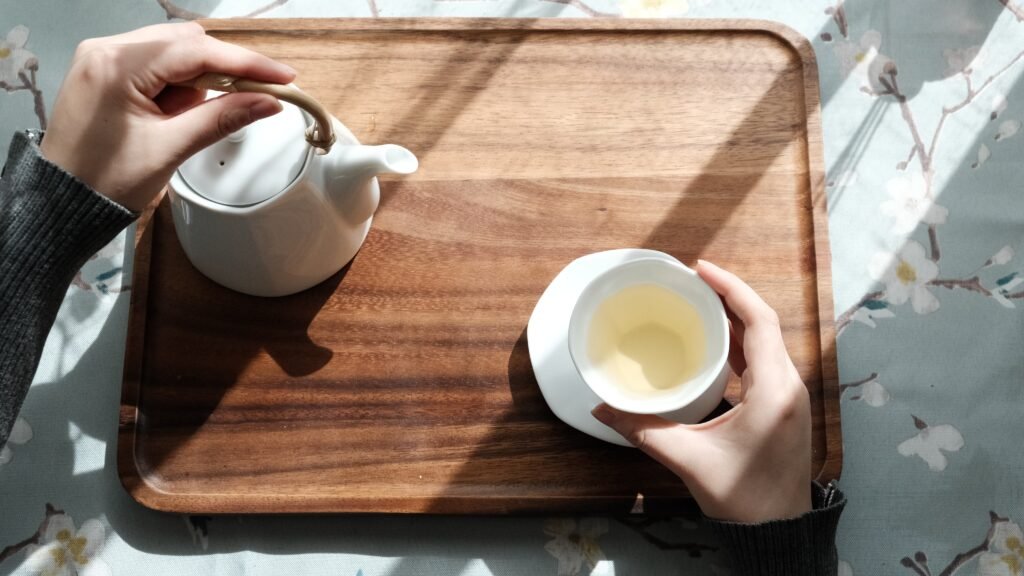In the vast and diverse world of tea, one variety that stands out for its pure and delicate nature is white tea. Renowned for its minimal processing and light flavors, white tea has gained a dedicated following among tea enthusiasts. This article delves into the characteristics that define white tea, from its origins and production methods to its flavor profiles and potential health benefits. Characteristics of White Tea: Exploring the Subtle Elegance and Delicate Flavors.

- 1. Introduction
- 2. A Brief History of White Tea
- 3. The Making of White Tea: A Gentle Process
- 4. The Subtle Flavors of White Tea
- 5. Unveiling the Health Benefits
- 6. Brewing White Tea to Perfection
- 7. White Tea vs Other Varieties
- 8. Exploring Blends with White Tea
- 9. Cultural Significance of White Tea
- 10. White Tea in Modern Times
- 11. Storing White Tea for Freshness
- 12. Dispelling Common Myths
- 13. Embracing the Aesthetics: White Tea Accessories
- 14. White Tea’s Contribution to Sustainability
- 15. Conclusion
- FAQs
1. Introduction
White tea, often referred to as the “champagne of teas,” is celebrated for its subtlety and delicate flavors. This article provides insights into the unique characteristics that make white tea a true gem in the world of tea connoisseurs.
2. A Brief History of White Tea
Originating in China’s Fujian province, white tea boasts a history dating back centuries. Its elegance and gentle processing techniques have earned it a special place among traditional Chinese teas.
3. The Making of White Tea: A Gentle Process
The production of white tea involves minimal processing, allowing the tea leaves to retain their natural appearance and delicate flavors. This method contributes to the tea’s uniqueness and authenticity.
4. The Subtle Flavors of White Tea
White tea’s flavor profile is characterized by its subtlety and lightness. The delicate notes of floral, honey, and grass create an elegant and soothing tea-drinking experience.
5. Unveiling the Health Benefits
Beyond its taste, white tea offers potential health benefits due to its abundance of antioxidants. These compounds are believed to support immunity, skin health, and more.
6. Brewing White Tea to Perfection
Brewing white tea requires a gentle touch. Using lower water temperatures and shorter steeping times allow the delicate flavors to shine without becoming overpowering.
7. White Tea vs Other Varieties
White tea differs from green, black, and oolong teas in terms of processing and flavor. Its unique characteristics make it a preferred choice for those seeking a light and nuanced tea experience.
8. Exploring Blends with White Tea
Tea enthusiasts and blenders often incorporate white tea into blends with herbs, fruits, and spices. This creates a fusion of flavors that can be enjoyed in a variety of contexts.
9. Cultural Significance of White Tea
In Chinese culture, white tea has been revered for its purity and symbolism. It has been a part of ceremonial rituals and has played a role in cultural traditions.
10. White Tea in Modern Times
White tea has not only retained its traditional appeal but has also found a place in modern tea culture. Its timeless qualities continue to resonate with a diverse range of tea lovers.
11. Storing White Tea for Freshness
To preserve the delicate flavors of white tea, proper storage is essential. Airtight containers, away from moisture and strong odors, help maintain its freshness.
12. Dispelling Common Myths
Myths and misconceptions often surround white tea. Separating fact from fiction allows enthusiasts to appreciate its qualities without misinformation.
13. Embracing the Aesthetics: White Tea Accessories
Unique teapots, cups, and accessories designed for white tea enhance the overall tea-drinking experience, adding a touch of elegance to each sip.
14. White Tea’s Contribution to Sustainability
As consumers seek sustainable choices, white tea’s minimal processing aligns with eco-conscious preferences. Its cultivation methods contribute to a more environmentally friendly tea option.
15. Conclusion
In a world filled with bold and vibrant flavors, white tea stands as a testament to the beauty of subtlety and simplicity. Its gentle processing and delicate flavors offer a unique tea-drinking experience that engages the senses and calms the spirit. As you sip a cup of white tea, you’re embracing a tradition that has transcended centuries while finding its place in contemporary tea culture.
FAQs
- Is white tea caffeine-free?While white tea generally contains less caffeine than black tea, it’s not completely caffeine-free.
- Can white tea be enjoyed with meals?Yes, the light and delicate flavors of white tea make it a versatile accompaniment to various dishes.
- Does white tea require a longer steeping time?No, white tea benefits from shorter steeping times to prevent over-extraction and maintain its delicate flavors.
- Can I find flavored white tea blends?Yes, many tea retailers offer flavored white tea blends that incorporate fruits, herbs, and spices for a unique taste experience.
- Is white tea suitable for aging like other teas?White tea doesn’t age as dramatically as some other types of tea, as its delicate flavors are best enjoyed within a shorter timeframe.
Contact Details:- 9499347308
